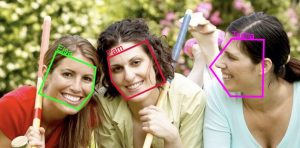Edge AI and Privacy
As sensors and AI proliferate in our devices and our environment, people are understandably concerned about the potential erosion of privacy. For example, there has recently been much discussion in the media about face recognition technology, and some governments have begun to regulate its use.
It may initially seem that the proliferation of sensors and AI must lead to loss of privacy. In reality, it’s possible to design intelligent, perceptive devices in ways that deliver valuable capabilities while protecting privacy. An early example of this is the Netatmo Welcome, a smart home monitoring camera that can be configured to disable video recording when familiar faces are present.
The purpose of this privacy portal is to facilitate awareness of the challenges and opportunities at the intersection of privacy, edge AI and machine perception.
View all Privacy Content
“Who Watches the Machines Watching You?,” a Presentation from Honigman Miller Schwartz and Cohn, LLP
Brian Wassom, Partner and Chair of the Social, Mobile, and Emerging Media Practice Group at Honigman Miller Schwartz and Cohn, LLP, presents "Who Watches the Machines Watching You? Regulating Privacy in the Era of Machines That See" at the March 2014 Embedded Vision Alliance Member Meeting. His talk discusses the legal considerations at the nexus

Automated Face Analysis Gets Real
By Brian Dipert Editor-in-Chief, Embedded Vision Alliance This blog post was originally published at EE Times' SoC Design Line. It is reprinted here with the permission of EE Times. This week, I've invited my colleague Brian Dipert to share his perspective on various face analysis algorithms used in embedded vision. As Editor-in-Chief of the Embedded

Camera-Inclusive Systems: Don’t Forget To Employ Sufficient Security Stratagems
Adding one or several image sensors to a system, along with the necessary "muscle" to process the captured still and video frames, can notably enhance that system's capabilities and consequent appeal to potential customers. But then again, as editor-in-chief of the Embedded Vision Alliance, you'd expect me to harbor such a belief, right? Keep in

YouTube’s Face Detection-Based Blurring: Digital Protection From Those Intent On Harming
As the daily news reports unfortunately make regularly clear, existing among us are no shortage of sick and twisted individuals who prey on children they find via (among other avenues) published images. And those same news reports document scores of situations in which captured still photos and video footage have been used by oppressive regimes

SceneTap: A Face Detection Privacy Flap
Back in September of last year, I introduced you to SceneTap, a service that uses webcams to provide a dynamically updated count of how many people are currently in a bar, restaurant, etc…along with estimates of male-to-female and age ratios, thereby implementing not only human face detection but also rudimentary face recognition (gender and age,

Google’s Project Glass(es): A Further Loss Of Privacy With A Touch Of Class
Remember Google's augmented reality glasses, the rumors of which I mentioned back in late February? Well, they're real, as it turns out, at least in prototype form. They're under development by the same 'Google X Lab' that is working on the company's autonomous automobile…and it's not April 1st, so I'm not fooling (although that's not

Unwanted Surveillance: An Inevitable Outcome of Consumer Non-Cognizance?
Remember the Samsung image sensor-inclusive televisions that I first mentioned in early January, with a follow-up blurb last Friday? Well, thanks to a Slashdot heads-up earlier today, I've got even more to say…and it's disturbing, to say the least. The title, "New Samsung TV Watches You Watching It," may be a sufficient topic tip-off, but

Facial Recognition: Bizarre Attempts To Circumvent Accuracy Of Detection
Lest you question that facial recognition technology is fraught with privacy and other concerns coming from the citizenry, the above image (not to mention those that follow) should dispel any doubts you may have. As reported at sites such as Boing Boing, MAKE Magazine and Slashdot, a New York-based designer called CV Dazzle has come

So a Guy Walks Into a Bar…
Today's news report admittedly isn't as verbose as the average, but I hope you'll still find it informative…or at least entertaining. At minimum, in contrast to some other embedded vision applications (and products targeting them) that I've written about to date, which have a futuristic (and, dare I say, speculative) aspect, the near-term, practical aspects

Facial Recognition: Increasing Adoption, Coupled With Privacy-Fueled Rebellion
As yesterday's post noted, embedded vision applications are rapidly broadening their reach beyond historical niches into widespread-adoption areas. Sometimes, this expansion occurs with the enthusiastic support of those being affected by it. Other times, though, the reaction isn't quite as sanguine. Such is the seeming case with facial recognition, which is the topic of an

